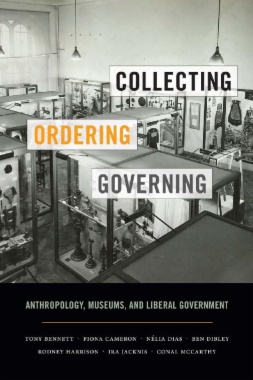The coauthors of this theoretically innovative work explore the relationships among anthropological fieldwork, museum collecting and display, and social governance in the early twentieth century in Australia, Britain, France, New Zealand, and the United States. With case studies ranging from the Musée de l'Homme's 1930s fieldwork missions in French Indo-China to the influence of Franz Boas's culture concept on the development of American museums, the authors illuminate recent debates about postwar forms of multicultural governance, cultural conceptions of difference, and postcolonial policy and practice in museums. Collecting, Ordering, Governing is essential reading for scholars and students of anthropology, museum studies, cultural studies, and indigenous studies as well as museum and heritage professionals.
- Cover
- Contents
- Illustrations
- Acronyms and Abbreviations
- Note on the Text
- Acknowledgments
- Introduction�������������������
- Chapter One. Collecting, Ordering, Governing
- Chapter Two. Curatorial Logics and Colonial Rule: The Political Rationalities of Anthropology in Two Australian-Administered Territories
- Chapter Three. A Liberal Archive of Everyday Life: Mass-Observation as Oligopticon
- Chapter Four. Boas and After: Museum Anthropology and the Governance of Difference in America
- Chapter Five. Producing “The Maori as He Was”: New Zealand Museums, Anthropological Governance, and Indigenous Agency
- Chapter Six. Ethnology, Governance, and Greater France
- Conclusion�����������������
- Notes
- References
- Contributors
- Index
- A
- B
- C
- D
- E
- F
- G
- H
- I
- J
- K
- L
- M
- N
- O
- P
- Q
- R
- S
- T
- U
- V
- W
- Y
- Z

